Natalia is a scholar, a writer, a teacher, and an activist who’s constantly exploring her blended identity. She’s also a mother of two who is obsessed with fitness culture, a woman who is dismayed with the direction the conversation around intersectionality has taken, a morning person, a challah lover, and a big, big fan of books.
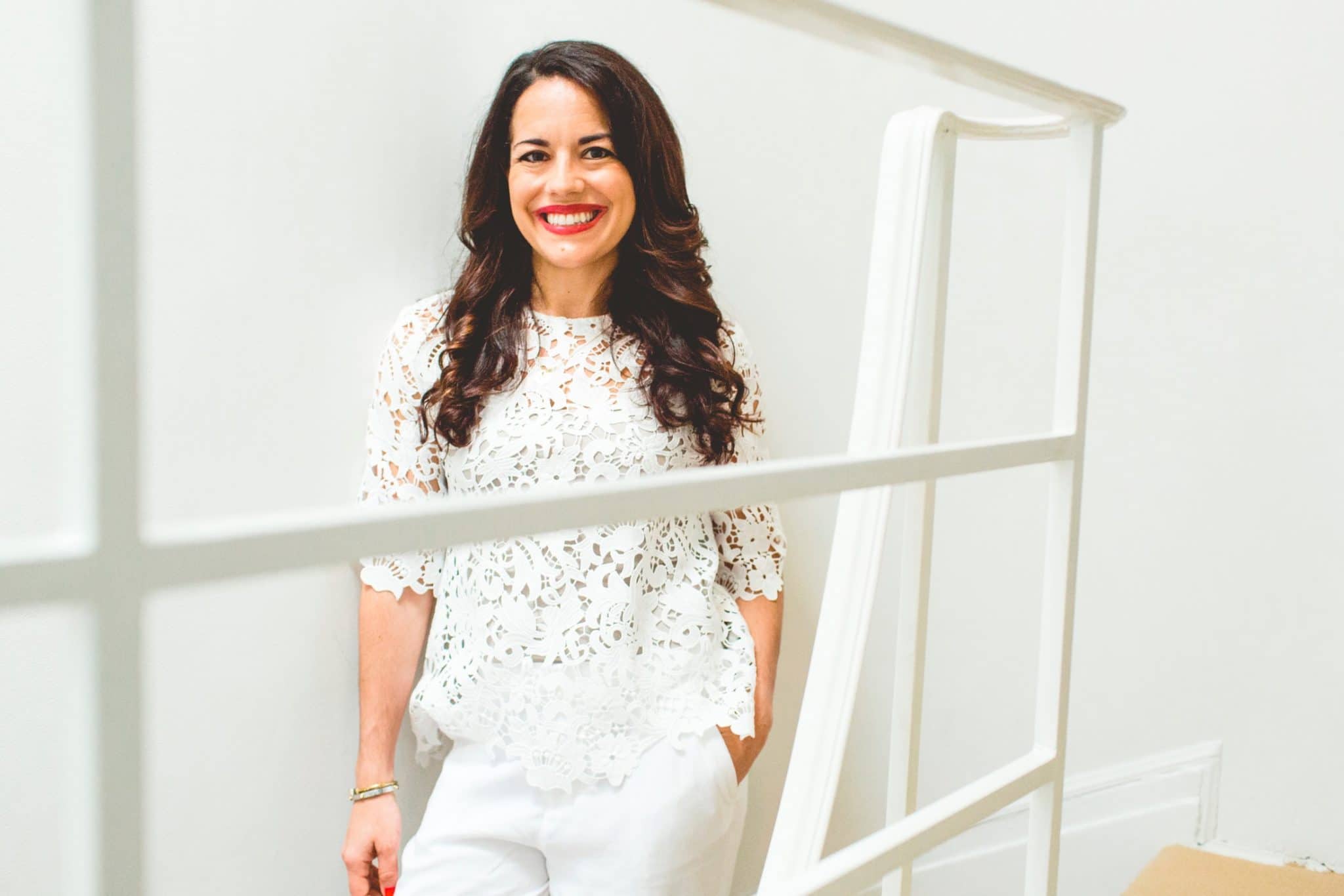
What is your earliest memory?
On the first day of kindergarten, I remember walking in and looking up at these very, very tall stairs and thinking, “There’s no way I can do this,” then thinking, “But, if I can do this, I can do a lot of things.” That feeling has repeated itself so many times in my life. Every life milestone, I think, “There’s no way. You are not going to be able to handle this. This is the day the house of cards collapses.” Then, there’s this little voice that’s like, “But, what if you do it?”
What’s the story behind your name?
Natalia Yael Mehlman Petrzela is my full name. My mother is Argentine, and there was kind of a power struggle there. My dad’s parents wanted me to be named after the deceased grandmother, Anna. Really pretty, too, but my mom made a stand for the Latin dimension of our life, so she chose Natalia. I’m kind of indiscriminately ethnic looking, so, when people hear Natalia, they often assume it’s Italian, because of the Natale, which is Christmas, even though it has nothing to do with that. Then, they hear Yael, and it’s pretty clear. Mehlman, my dad is an Eastern European Jew, and Petrzela, my husband is an Eastern European non-Jew.
What was your kid personality?
I’ve always been super into the books, a serious student, but not always secure. I remember my teacher said, “Does anybody know how to spell knife?” I really knew it was spelled with a “k,” but I was too embarrassed to raise my hand, because I’m thinking, “If it’s not spelled with a ‘k,’ I’m gonna look so stupid…” I didn’t, and of course it’s spelled with a “k!” If you know, take a risk, don’t be so scared. It took me a while to learn that lesson. The exact same thing happened in the 3rd grade with the word “czar.” Since then, I’ve gotten over it.
What advice would you give your teenage self?
Focus on the things that you have control over, because you can make those things incredible. Around my sophomore or junior year, I remember being so wound up: “Are boys going to like me? Am I pretty?” That “pick me” thing, which is so passive. It’s so wrenching for a young girl. What I did to escape all of that was throw myself into my studies. I thought, “I can work all day to get some boy to look at me again and it could work or it couldn’t work, but, if I just do my work, I will learn all these things and I will do well and I will go to a good school.” I think that’s good advice, because I see it happening with young people, especially girls – that waiting to be picked or for someone to tell me I’m cool. It’s so self defeating. I’m still not immune to that feeling.
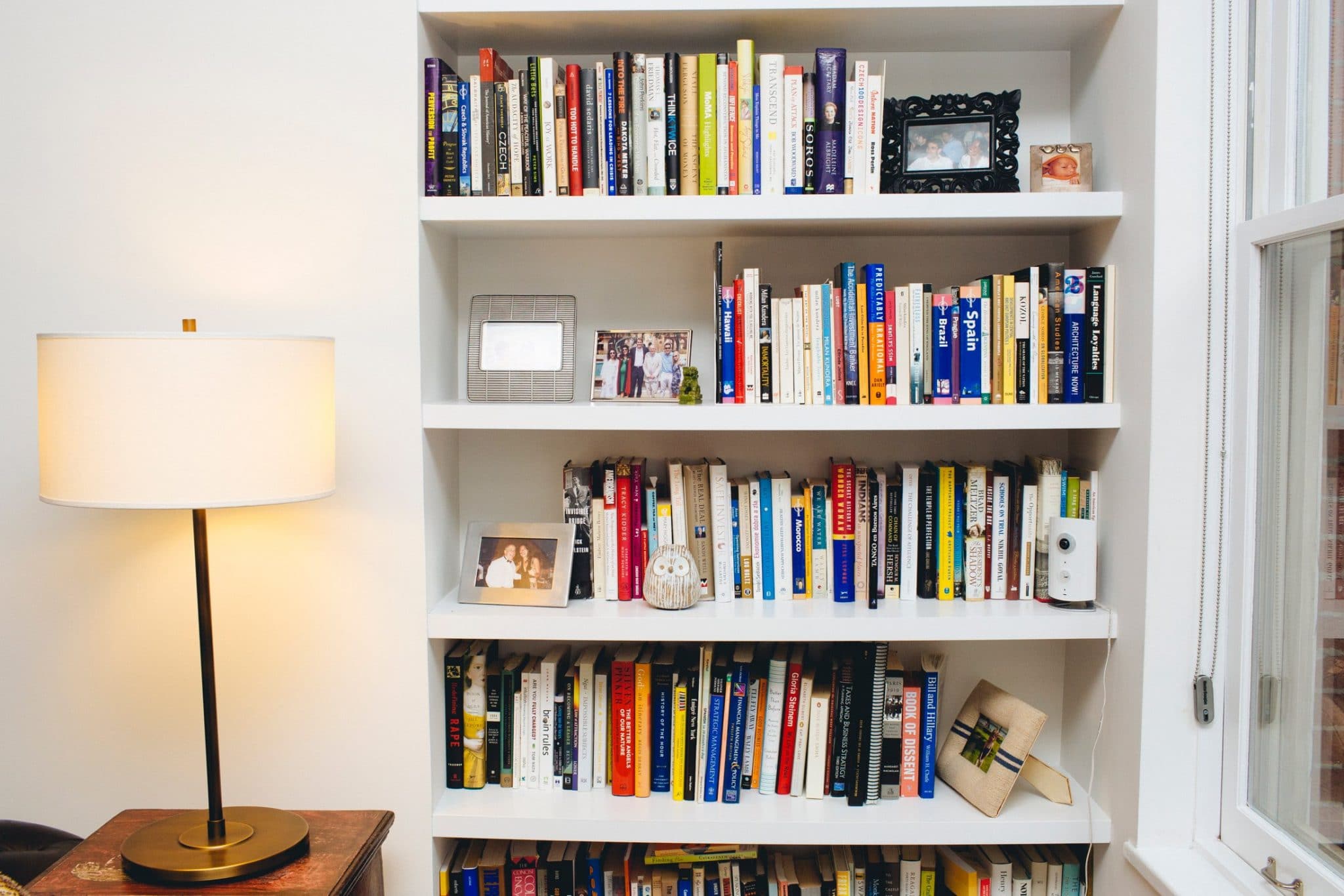
What role did Judaism play in your childhood?
I was a real golden child. Did all my work, was really nice, sure she can come for playdates, everything. The realm of rebellion that I had, which was pretty narrow, was Judaism. “I hate Hebrew School! I don’t want a bat mitzvah! This is stupid!” That limited me from a thoughtful, meaningful engagement with what it meant to be Jewish. That didn’t come until later on.
My grandparents’ generation was the victims of the Holocaust, so that was very close. On the other hand, growing up in this Jewish suburb, Judaism meant fancy bat mitzvahs and camp. There was that real disconnect. As happens when one’s world starts to expand, I started to see when you leave these little pockets in Massachusetts, the Upper West Side, you realize we’re an ethnic minority that, at best, people are unfamiliar with, and, at worst, there’s rampant anti-Semitism.
I remember this one moment in college with this guy who was cosmopolitan enough to go to Columbia, who said, “What are you?” That question. I said, “Oh, I’m Jewish.” I won’t say he recoiled, but he was like, “Full?,” with this look. He went on to tell me that, where he grew up, there was one Jewish kid in the athletic league, and they would throw pennies at him when he came on. I was like, “What?!”
It was this awareness that, “Wow, I’ve been living in these little, tiny bubbles.”
I have this keen sense of justice, being a professor, being in the world of books. There’s a reason why academia has a high representation of Jews, because that is part of this cultural tradition.
Ever since I was a kid, most of my social circle tends to be Jewish, which says a lot about who I am. I’m probably the most secular of all my Jewish friends. I’ve never found real community through deliberately Jewish institutions. I have family members and friends who are really active in the JCC or UJA. All the more power to them, but that’s never been my scene.
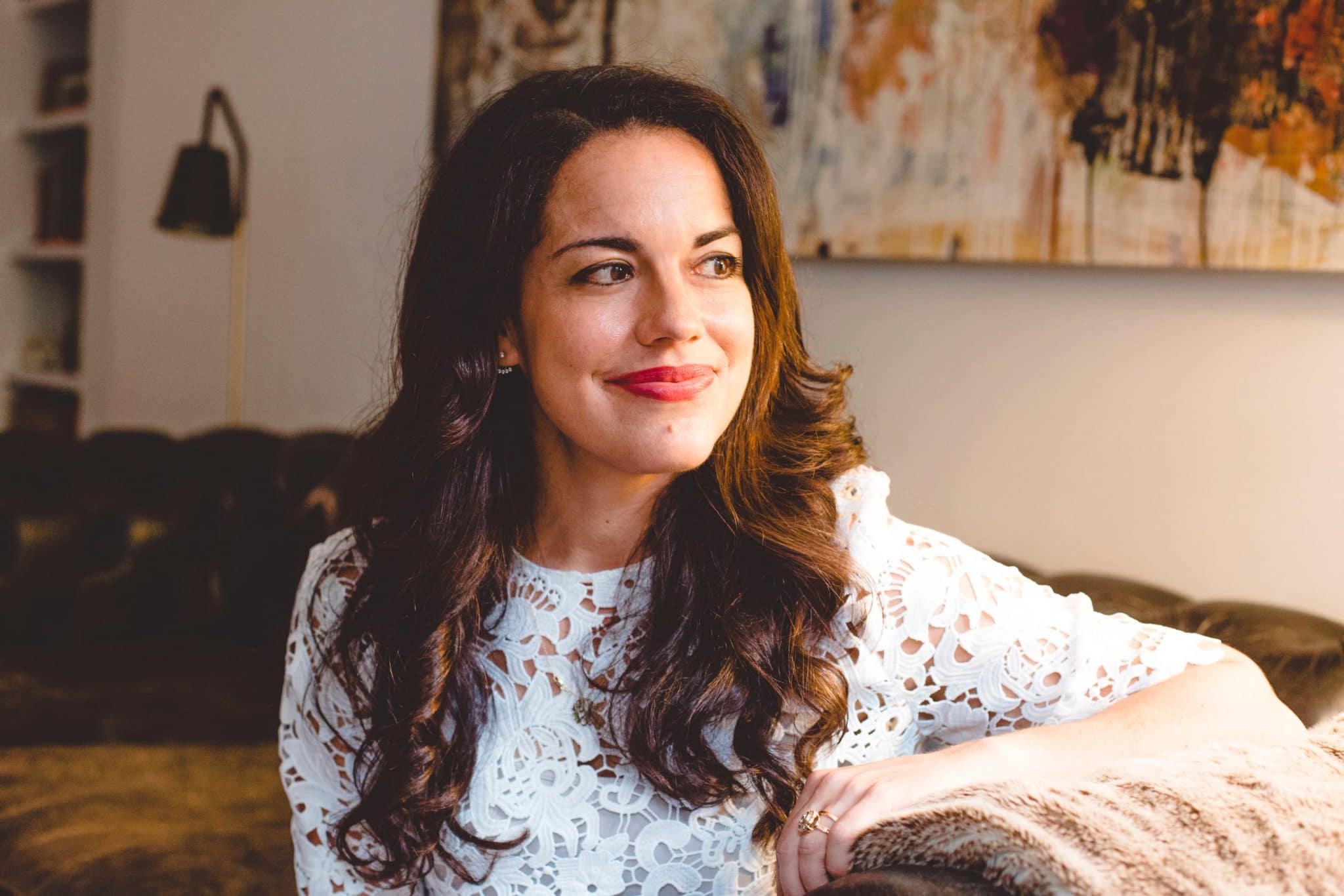
How does Judaism play into your everyday life now?
It intersects for me with intellectual life. As a professor, I have been troubled recently about the kind of conversations about Judaism on campuses. One of the things that has driven me a little bit crazy is what I consider an ahistorical understanding of what it means to be Jewish in the United States. The quickness with which people dismiss Jews as “whitey” or “the white oppressor.” I’m like, “Back up. Jews were not white until the late 1940s, so think about what you’re talking about there.”
I have been dismayed at the way that I think a very important theory – intersectionality – has slid into this idea that you’re not a feminist if you’re not going carry a Palestinian flag in a march. I understand all issues are women’s issues, but I see a slippage into old school anti-Semitism or an ahistorical ignorance about what it means to be Jewish that has fired me up in a way that makes me want to claim Jewish identity more.
So what does that mean in my everyday life? It would not be true to me to suddenly take up all these rituals that are not in themselves enormously meaningful, but, with my children, I say, “You are Jewish, you are Czech, this is part of our history, this is where you come from.”
I look at President Trump’s message in the Holocaust Memorial, and it looks like somebody made him write “Never forget!” like it was a great weekend in Vegas.
That, combined with the resurgence of straight up KKK anti-Semitism during this election, has made me much more keenly aware of my own identity, but also of my own responsibility to claim it. The religious dimension, I’m still working that out.
Are there rituals or traditions that feel meaningful to you?
With all the holidays, we don’t celebrate in the traditional way, but, they’re all opportunities to take the spirit of them and do something. We have Rosh Hashanah resolutions, in part because I’ve never not been on an academic schedule, so, for me, the year truly starts in the fall. Same with Yom Kippur. When is it not a good time to think about, take stock, and do a little atonement? I don’t want to say it’s a hollowed out version, because that sounds very negative, but it’s understanding enough to maintain the spirit in a way that makes sense.
There are these symbols that are really important to me. This ketubah is one of them. It’s probably the most important object in our whole house. It begins “I found the one in whom my soul delights,” and it’s in English. We refer to this all the time. We talk to our kids about what’s in here. We talk about all the commitments that we’ve made. My whole life is text. It’s books, it’s reading, so, to have a founding, unifying text like that for our relationship is really important.
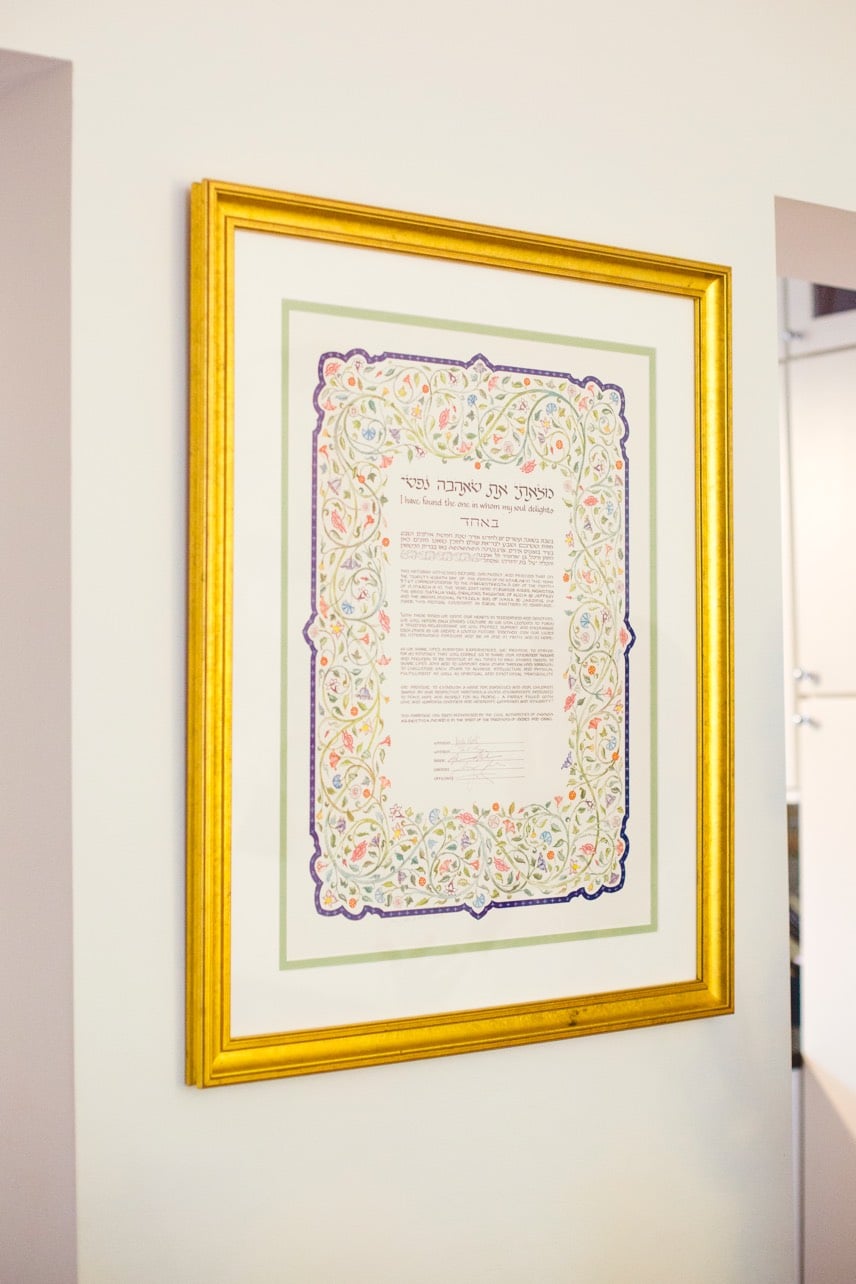
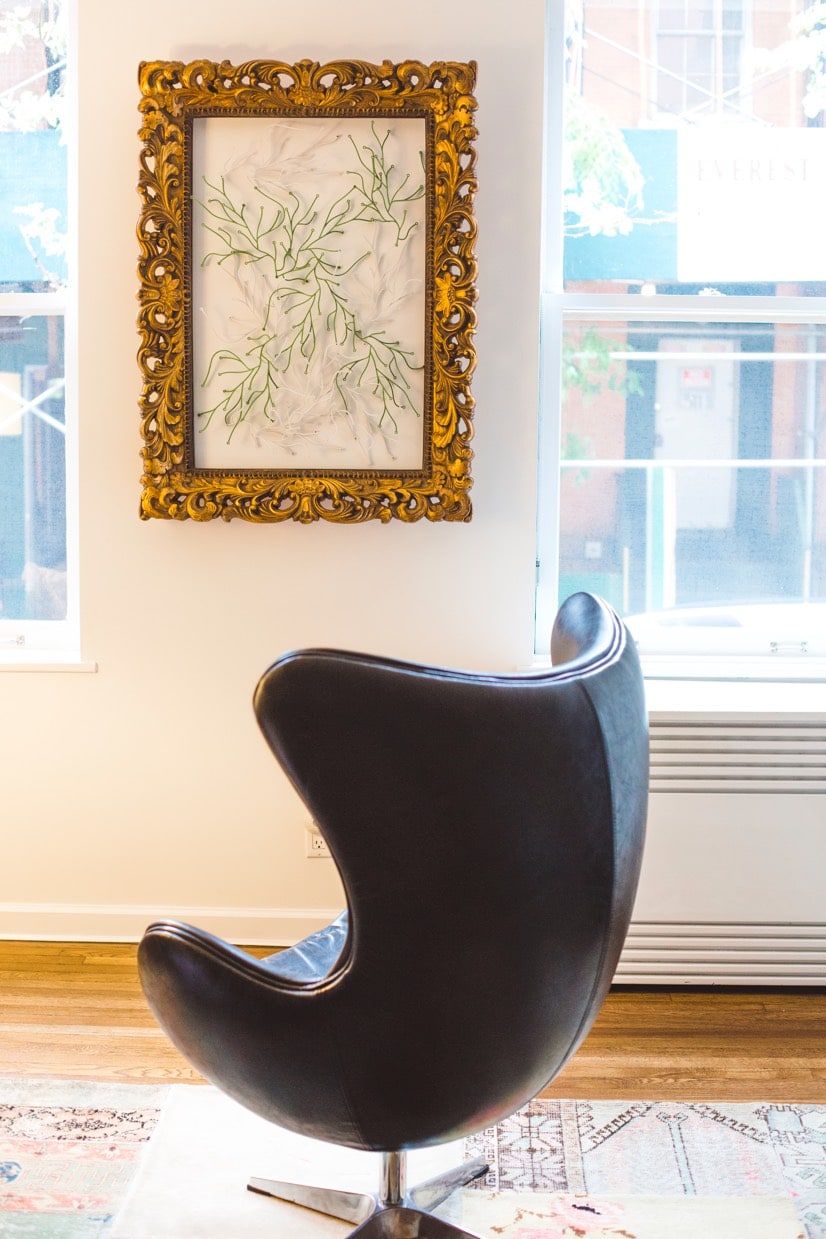
Tell me something that has surprised you about being married.
How much the person you’re with and the family you create becomes home rather than the place you are in. I remember, at times, feeling like, “God, if I have to leave New York or leave the Bay Area, what would I do? This is my life.” Now it seems like our little unit could go to Antarctica for a while.
What is something that works for you and your husband as a team?
We’re such morning people, and our children are really, really into us putting them to bed at night. This works well for us. What we’ll often do to reconnect is get a sitter in the morning on the weekend, from 8am to 1pm. We work out together, we shower at the gym, we have brunch, we walk around for an hour, and then come back and engage with the family. We both feel so good when we exercise, we’re really awake and connected, and there’s this freshness to the day, so that works really, really well. I call it “Date Day.”
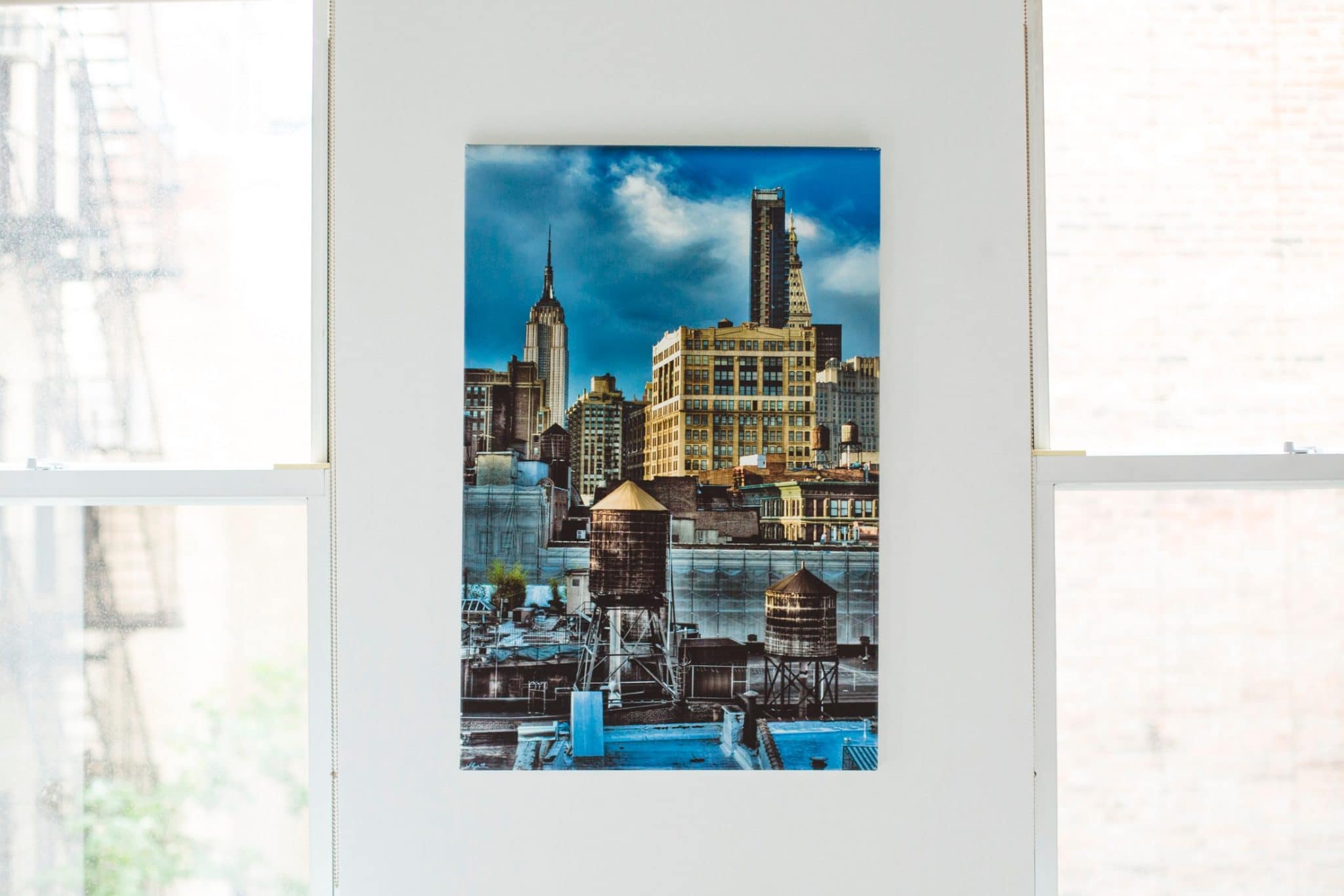
What is an immediate turn-off for you?
I spend so much time in and thinking about the wellness world that one of the things that makes me crazy is this idea that all you need to do is choose to be happy or rich or abundant and then it’ll happen, because the flipside of that is you must just have a bad attitude and that’s why you’re poor or you got raped. I’m a big optimist, I do think positive thinking should be embraced by more people, but, come on. I find myself being such a wet blanket sometimes. When you hear that inspo and I’m like, “Um, actually, what about structural racism and poverty and embedded misogyny?”
What’s something that you’re naturally drawn to, for better or for worse?
I love clothes. I adore clothing of all levels. I take the most pleasure in bargain shopping. My mom and I have this ritual of going to the racks together, especially when there’s something to celebrate. When I got the job that I have now at The New School, we were in Loehmann’s going through things and then, when I found out I got tenure, we went to Century 21. As long as you’re not getting into debt by liking pretty things, what’s the problem with that? Sometimes I’ll do shopping moratoriums. For all of 2015, I did not buy any clothing. It’s like a cleanse.
What is your biggest insecurity?
That I won’t fulfill my potential. I don’t know if that says I have an outsized sense of my potential, but I have this feeling that there’s so much I could do and that I’ll fail at that. Sure, I missed years, months and months, of the publishing cycle because my children were born, and that doesn’t bother me. I can happily say, “Sorry, I was having babies.” It’s more like, you were sitting on your butt watching Netflix and this passed you by or someone else wrote your book. I always have such mixed feelings when I see some article that comes out that’s in my conversation because I think, “Yes, it’s a conversation! People care!” And then, part of me is like, “Scooped!”
What has been your greatest achievement?
I’m going to use an era. I would say it was emerging from 2009 intact and thriving. I managed to finish my dissertation, have a baby, and graduate my PhD in a space of months. That was a big deal.
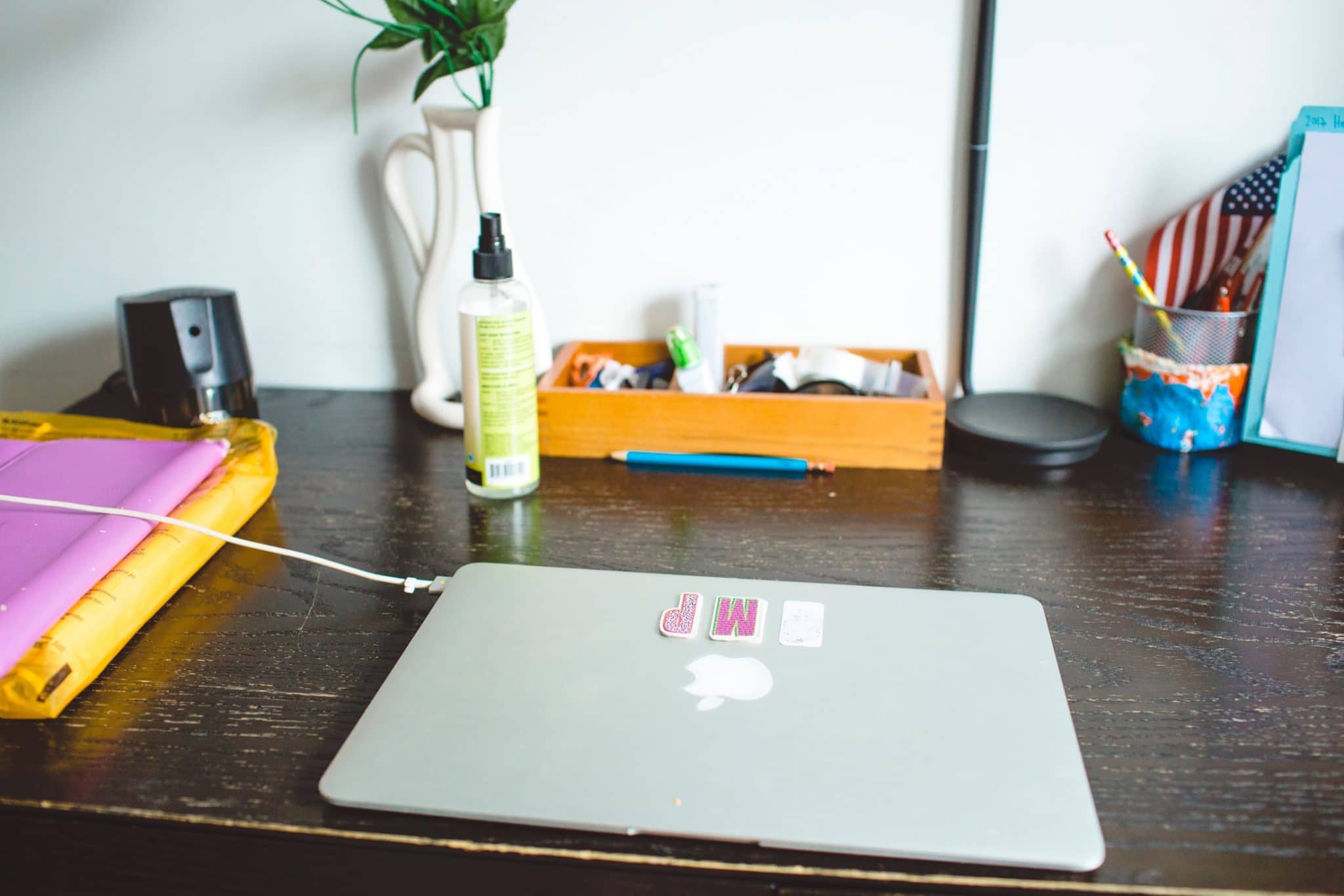
Do you have a favorite book?
One book that I love that is very much on the Jewish theme is American Pastoral by Philip Roth. He is a great writer. Books about family generations that are very rooted in historical context, I love that. Post-war transition between this generation of the intensely persecuted in the most intense way to this identity as this upwardly mobile affluent class. Seeing that happen through literature is illuminating.
Which historical figures inspire you?
Eleanor Roosevelt is a really interesting figure. She really reshaped the office of First Lady, in terms of making it a real policy position and shaping her husband’s agenda. I wouldn’t mind sitting down with Phyllis Schlafly either. It’s not just the people you admire. She stands for lots of things that I despise, but, God, she mobilized this generation of women who were not political to get political and I think we should learn from her.
What’s something that you’ve learned recently?
From my daughter I have learned a little bit about my own assumptions. She’s a super, super tomboy. Sometimes I think, “She’s so cute in a dress, I want you to wear a dress, you look so cute.” I don’t fight with her about it, but it’s forced me to wonder, why does that bother me?
We all probably should resist imposing who we are on our kids, particularly when it’s for pretty superficial things.
I’m like, “Hey, Natalia, what do you stand for? You stand for not imposing traditional versions of femininity, especially on young girls, so, if your daughter is not into that, check yourself.” I’ve come to love her little board shorts, because she loves them so much.
Favorite Jewish food? Least favorite Jewish food?
Favorite Jewish food, definitely challah and charoset. Not necessarily together. Matzo ball soup, I love, too. Least favorite, gefilte fish. Ugh. I almost feel bad saying that, because it’s been so long since I actually tried it, but, just looking at that jelly that comes with it…disgusting. I also really hate lox, but I’d rather have lox than gefilte fish.
Photos by Elena Mudd
Thank you for visiting Arq!
Arq is no longer publishing new content. We hope you'll enjoy our archived posts.